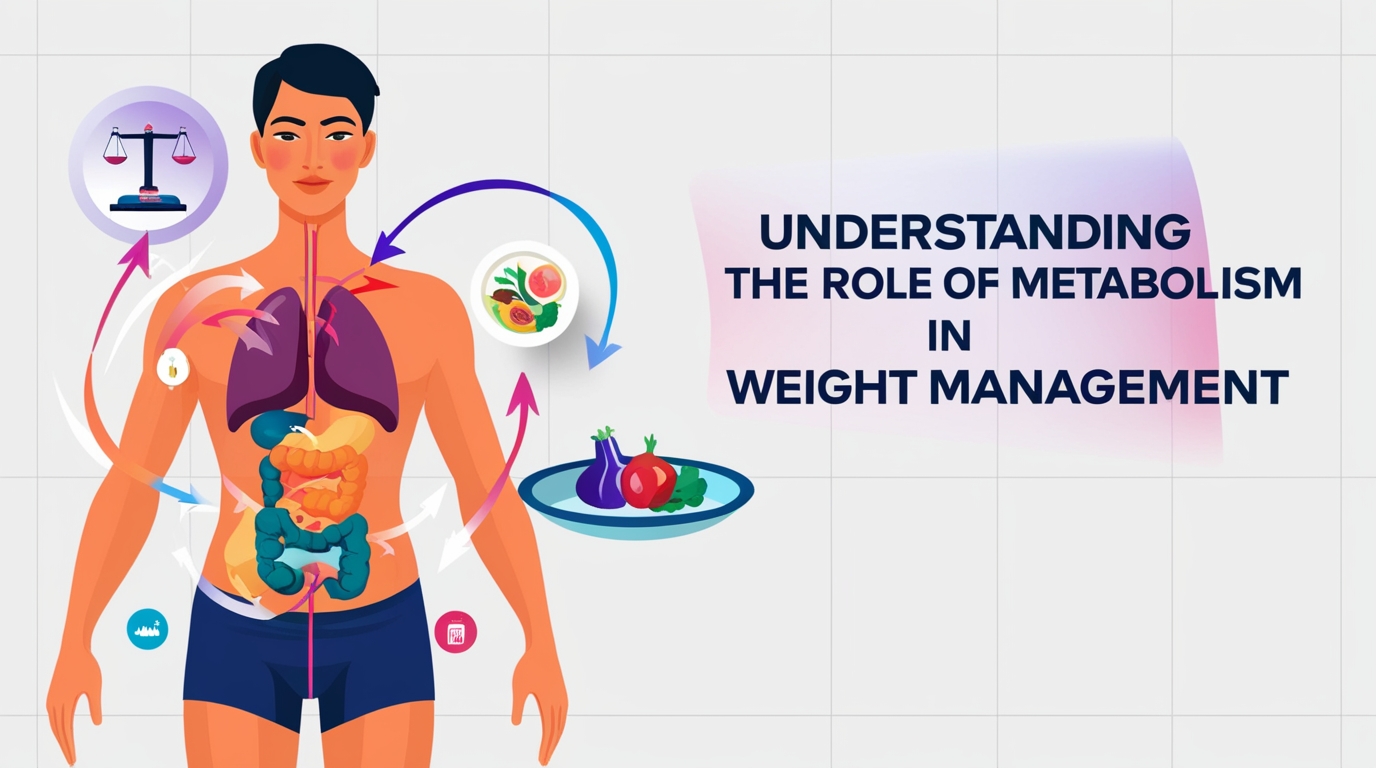Weight management is the most important aspect nowadays. When it comes to weight management, one word often comes up in our mind which is metabolism. But what does it really mean, and how does it affect your ability to lose or gain weight? In this blog, we’ll understand about metabolism in simple terms and explore its role in weight management.
Want to manage your weight with nutrition click here.
What is Metabolism?
Metabolism is the process our body uses to convert food into energy that our body consumes. It involves a series of chemical reactions that break down the food you eat and use it to fuel your daily activities, from breathing and walking to thinking and exercising.
Metabolism is basically divided into two parts:
- Catabolism: This is the process of breaking down molecules in our body to release energy. For example, when you eat carbohydrates, your body breaks them down into glucose, which provides energy.
- Anabolism: This involves building up molecules, such as proteins, to support growth and repair in the body. For instance, after you work out, your body uses proteins to help repair and build muscle.
Basal Metabolic Rate (BMR)
One important concept in understanding metabolism is Basal Metabolic Rate (BMR). BMR is basically the number of calories our body needs to perform basic functions while at rest, such as breathing, circulation, and cell production. Essentially, it’s the energy your body needs to keep you alive.
Several factors influence your BMR, including:
- Age: As you get older, your BMR tends to decrease which affects your metabolism.
- Gender: Males typically have a higher BMR than females due to more muscle mass.
- Body composition: More muscle means a higher BMR, while more fat means a lower BMR.
Total Daily Energy Expenditure (TDEE)
While BMR measures the calories needed at rest, your Total Daily Energy Expenditure (TDEE) includes all the calories you burn throughout the day, including physical activity and digestion. TDEE is calculated by adding your BMR to the calories burned during activities, such as exercising and even just walking around.
To manage your weight, it’s essential to understand your TDEE. If you consume more calories than your TDEE then you will gain weight. Conversely, if you consume fewer calories than your TDEE, you will lose weight.
Factors Affecting Metabolism
While you can’t change some factors affecting your metabolism (like age and gender), there are several lifestyle choices that can help boost your metabolic rate:
- Exercise: Regular physical activity, especially strength training, can increase muscle mass, which helps raise your BMR. Even small activities, like walking, can add up.
- Diet: Eating enough protein can boost your metabolism for a few hours, thanks to the thermic effect of food (TEF). This is the energy your body uses to digest, absorb, and process the nutrients in your food.
- Hydration: Drinking water can temporarily boost your metabolism. Staying hydrated is important for overall health and can aid in weight management.
- Sleep: Not having proper sleep can negatively affect your metabolism and lead to weight gain. Aim for 7-9 hours of quality sleep per night.
- Stress Management: High stress can lead to hormonal changes that may slow your metabolism and increase cravings for unhealthy foods. Practising mindfulness, yoga, or simply taking time to relax can help.
Metabolism Myths
There are many myths about metabolism that can be misguided by many:
- Myth 1: “You can’t change your metabolism.” While genetics play a role, lifestyle changes like diet and exercise can significantly impact your metabolic rate.
- Myth 2: “Eating less will always help you lose weight.” Drastically reducing calories can slow your metabolism and lead to muscle loss, making it harder to maintain weight loss.
- Myth 3: “Metabolism is the same for everyone.” Everyone’s metabolism is unique due to various factors, including age, sex, genetics, and body composition.
Conclusion
Understanding metabolism is crucial for effective weight management. It’s not just about counting calories; it’s about finding a balance that works for your body. By making informed lifestyle choices—like regular exercise, a balanced diet, staying hydrated, getting enough sleep, and managing stress—you can support your metabolism and achieve your weight management goals. And stay active and focused on your work.
Remember, patience is key! Weight management is a journey. By focusing on healthy habits and understanding how your body works, you can create a sustainable path to a healthier self. And can have a good metabolism ..





